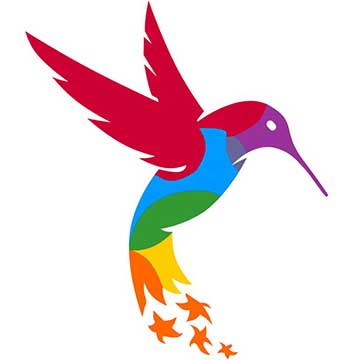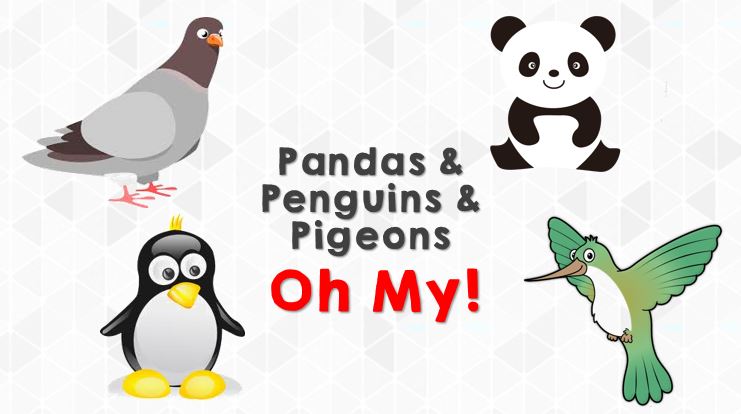Google’s Animals refer to the four most popular algorithms of the more than 200 algorithms (checkpoints) that Google uses to determine where a website will rank within a search result and for which search queries. The exact checkpoints that Google uses are not released to the public and finding the correct formula for working this periodic table can be a real challenge for even the best SEO specialists.
Google will occasionally make recommendations and will also give out hints. The SEO community has over time simplified these checkpoints and placed them into four categories. Each category has been given animal characters to make them less intimidating.
Each of these animals plays an important part in your SEO campaign and you need to understand them if you hope to be number 1 for your keyword.

Google Panda
The Panda algorithm was first released in February 2011, named after its creator, Google engineer Navneet Panda. The algorithm focuses on helping websites with unique informative content appear above websites full of spam, advertising, and copyrighted material. The algorithm continues to have numerous updates every few months.

Google Penguin
The Penguin algorithm was first released in April 2012, and has been Google’s best weapon against black-hat SEO techniques by dodgy webmasters. Google’s original back-rub algorithm ranked websites by the number of backlinks it had from other sites. However, many webmasters took advantage of this by creating thousands of backlinks from random (often empty websites). The penguin algorithm now checks all backlinks rather than just counting them and penalises websites which engage in this practice. Many websites have been hit by this algorithm especially when a cheap agency or developer was used.

Google Hummingbird
The Hummingbird algorithm was first released in August 2013. Hummingbird is an advanced artificial intelligence algorithm which tries to understand the meaning of people’s search queries often when a question is being asked and directing searchers to the most relevant websites to answer their questions. Google continues to develop more advanced artificial intelligence algorithms to improve search results and recently announced RankBrain (more on that later).

Google Pigeon
The Pigeon algorithm was first released in July 2014 and tied in Google Maps with the Google search engine. Now whenever you do a search on Google for a restaurant, hotel or coffee shop, Google looks at your location first, and then using data from Google Maps shows you the best coffee shops within your location rather than a coffee shop 50km away.

